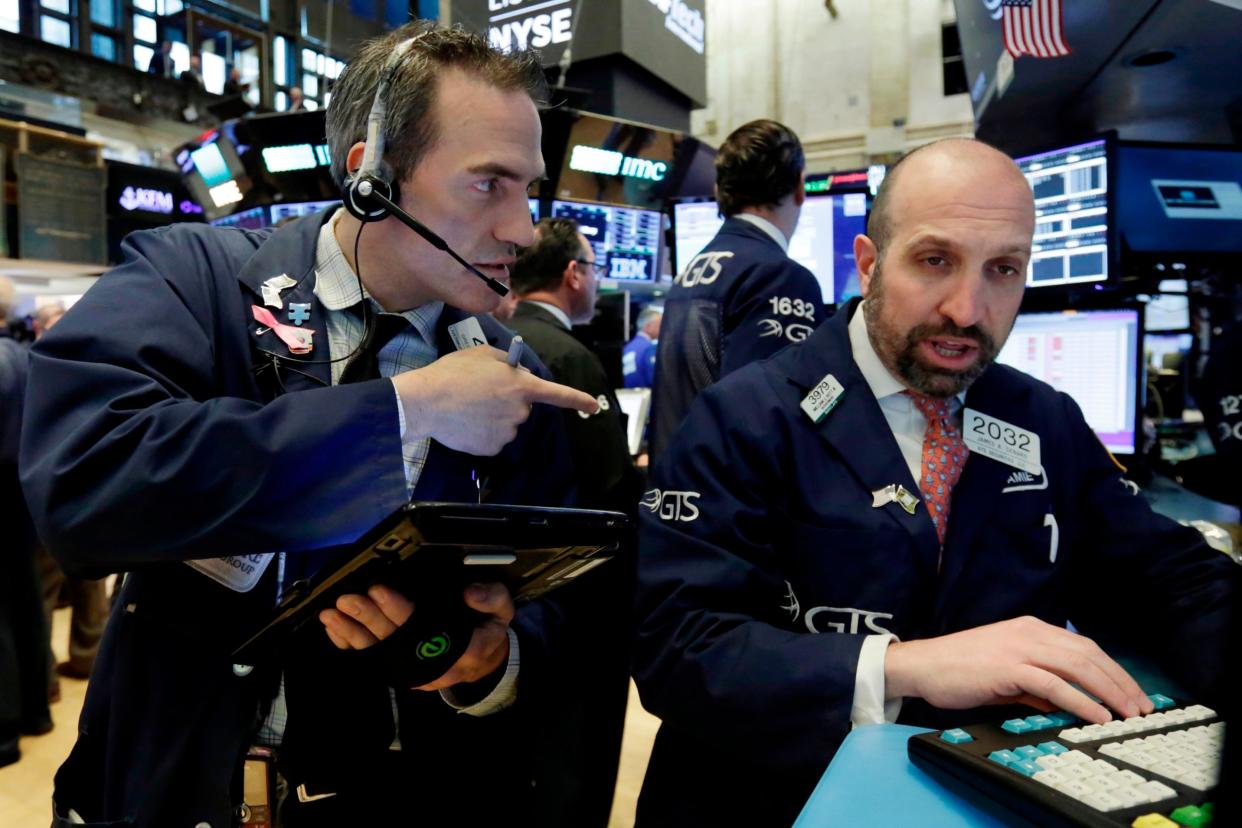Hamish McRae: US is Desperate Dan now but Wile E. Coyote’s cliff looms

Let’s start by focusing on America because US equities hit another all-time high last week, despite an unpopular president, fears of a trade war, and the impact of rising US interest rates. They have been buoyed in particular by the boom of the high-tech world, though in the past few days the market value of stars such as Apple and Amazon has come off a little, and support has broadened. That is surely a positive sign.
So the American share market seems to be behaving like Desperate Dan, the Wild West hero of The Dandy, the comic produced by DC Thomson of Dundee that sold two million copies a week in the Fifties, and only finished printing six years ago. For those not entirely up to speed with the popular culture of a generation or more ago, he was the strongest man in the world, able to lift a cow with one arm, knocking out a buffalo with his fist, and blowing a hole in the bar-room floor when he sneezed.
Thus US companies are helping to hold up economic demand in the world’s largest economy. They are hiring more people, driving the unemployment rate to the equal lowest since the Seventies, pumping out more profits, and thanks to the tax changes, paying more into the US exchequer than ever before. They may not have knocked out international competition in every sector, but they have in high-tech. They have also helped to blow a hole in the floor of the Chinese share prices, now at a four-year low, though local factors are at work too.
But might the US market — leave the economy aside for a moment — be more like Wile E. Coyote? Remember the Looney Tunes character who is endlessly chasing (and being outwitted by) the Road Runner. One of the great gags is that Wile E. chases him over a cliff, keeps running in mid-air, and only when he looks down and realises there is nothing underneath does he plummet to the ground.
Several thoughts. As far as the economy goes, American muscle dominates. We all have an iPhone or Android equivalent. Facebook has 2.2 billion users. Netflix will spend $8 billion (£6.1 billion) on content this year, while the BBC spends £2.7 billion. We are getting push-back now from the European regulators, but if people are happy to give their information to Google or Amazon in exchange for the services they receive, it is hard to see quite how far the regulators can push. We seem to trust the American giants more than we do our own governments.
US dominance will be challenged, but how? You can try telling your citizens that they shouldn’t buy an iPhone, as President Erdogan of Turkey did a few weeks ago, but you won’t get very far.
In addition, the US economy is running hot. No one knows how low unemployment can go without feeding through into higher wages, but unsurprisingly pay is starting to nudge up. Annual earnings are up just under 3%, the highest for nine years. That is why the Fed is widely expected to increase interest rates this week.
My guess is that the US will squeeze out more productivity, and suck more people back into the workforce, and this will contain wage pressure. But — and this is the famous cow pie that gave Desperate Dan his strength — the whole economy is being boosted by Trump’s tax cuts. If you give a fiscal boost at the wrong time in the cycle, it will have to be offset by monetary restriction. Stand by for higher interest rates, higher than the market currently expects.
Now think about financial markets, and in particular the long bull run. I am intrigued by the argument of Ken Fisher, head of Fisher Investments, that you typically get 20% of the gains in a bull market in the final stages. You don’t want to miss that. He also argues, by the way, that historically the mid-term elections in the US are good for shares, because they usually result in gridlock and it’s good for the economy to have politicians unable to do much.
But I am also intrigued by another legendary investment guru, Mark Mobius, until recently chairman of Templeton Emerging Markets, now running his own firm. He is on record as thinking that a big adjustment is on the cards — he spoke earlier this year, of the possibility of a 30% fall in US share prices.
So, Desperate Dan or Wile E. Coyote? I think it is Desperate Dan for the economy, at least for a bit yet. However, at some stage, though I cannot tell you when, it will be Wile E. Coyote for US share prices, and because they are so massively important, for global asset prices too.

 Yahoo News
Yahoo News 
